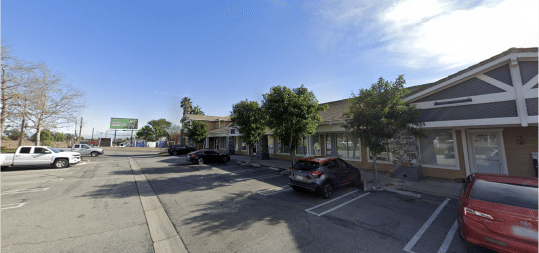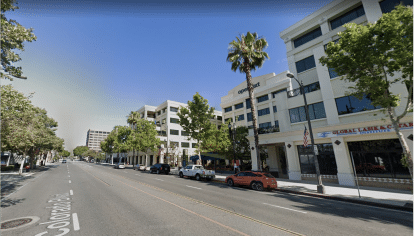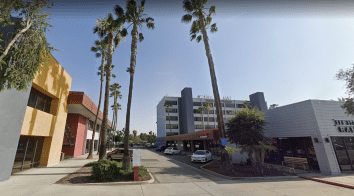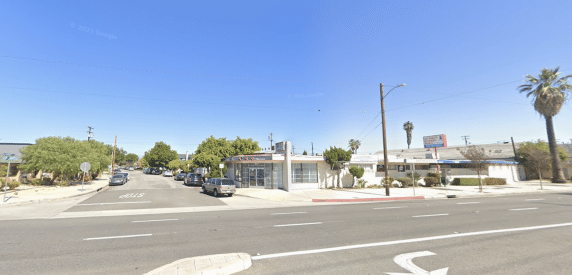
Being arrested for a crime can cause significant life disruptions. You may miss out on opportunities to expand your business, communicate with family and friends, or continue enjoying your freedom. That's why CBB Bail Bonds helps you get back to normalcy by posting your bail to guarantee release from custody. We are bail bondsmen that assist the family members of the incarcerated in Newport Beach in obtaining the money needed to post bail. This will ensure you have enough time to perfect your defense as you conduct your daily business.
Bail is a means for releasing those who have been arrested before the trial. Typically, bail is established to be settled in cash (mostly called cash bail). Quite often bail can be set at exceptionally high amounts—thousands of dollars—meaning many people cannot afford to pay for it. In these situations, the arrestee or their family or friend will get in touch with a Newport Beach bail bonds company to make bail arrangements.
A bail bond is an arrangement between the court, the arrestee, a bail bondsman, and occasionally an indemnitor for the accused's release. The defendant promises to appear at subsequent court dates in exchange for the bail being paid.
The bail bonds agent demands the indemnitor or the defendant to pay a 10 percent fee on the entire bail. Whether the accused appears or not, that 10% fee serves as the bail agent's commission and isn't refundable. To prevent loss when the defendant fails to appear in court, the agent could additionally ask for a down payment of the accused's or guarantor's assets.
These assets may include priceless items like jewelry, homes, and cars. Assets like real estate could still be used. However, you will provide the agency with your deeds in exchange.
The bail agency will then release the property 8 weeks after you have successfully attended all court dates. Your property will be returned regardless of whether you are found guilty or innocent; all the agency asks is that you appear in court and follow the court's rules.
A court sets the bail sum when an offender is detained and sent to jail. The judge takes into consideration the following while determining the bail sum:
There are 3 main ways for an accused in California to leave custody following an arrest:
If you've perpetrated a minor crime such as a first-time DUI offense, the responding officer could give you a citation to show up in court.
Making bail entails providing security for upcoming court proceedings. According to California law, there are three forms of bail:
The charges against the offender and their financial position are frequently taken into account while deciding on the best bail type. The defendant is required to pay the whole bail sum in cash when posting cash bail, though certain judges could take credit card payments. The court could set a very high bail sum when they wish to guarantee that the accused is kept behind bars throughout the trial. When an offender is deemed to be at risk of fleeing or a threat to the general public, courts generally issue a cash bail.
When the accused does not show up to court, their bail sum is lost, and the court issues an arrest warrant. The money is given back to the accused after sentencing provided they show up for all court appearances and follow the rules of the court.
Another name for bail bonds is surety bonds. If the accused is unable to pay the bail set by the court, a Newport Beach bail bonds agency can help you pay the entire sum. A friend or a member of the family approaches the bail bond broker, who shows up for court with the accused and promises to settle the entire bail sum if the accused does not attend.
The defendant or their family members and friends will be required to pay the bail bond agency a sum of money referred to as the premium. Additionally, the bail bondsman could use the extra property as security. Newport Beach has a large number of authorized bail bond agencies, although some are more trustworthy than others.
As a result, it's crucial to make sure you pick a trustworthy bail bond agency that is willing to do anything to free your loved one from custody.
Presenting property as a bond ensures that the defendant will appear in court as scheduled. The property includes houses, and vehicles, among other valuable objects. The property will have a lien or claim placed on it by the court. The court could take these assets and compel the accused to relinquish ownership when the accused fails to show up for court to facilitate disposition and payment of bail. As a result, an accused person must think carefully before posting bail using their property.
A property bond should be the last resort that should only come in if it is impossible to post cash bail or surety bail.
Sometimes, a defendant might avoid incarceration by just pledging to make all of their court appearances. This is referred to as an "own recognizance discharge." The court could trust and discharge someone on their own recognizance provided the following conditions don't apply:
Defendants are frequently freed on their own recognizance under California law. However, if the accused has perpetrated a significant offense, the court might order them to make bail.
A release on own recognizance is determined by the judge during the hearing proceeding. The judge may need to hold an adversarial session before releasing the accused on their own recognizance, based on the kind of offense they committed. The defendant's counsel will provide arguments why the accused should be discharged on their own recognizance at the arraignment proceeding.
The court could also inquire about the prosecutor's opinion on the accused's own recognizance discharge. To decide whether the offender should be discharged on their own recognizance, the court may ask the prosecution for any material that would be useful.
How does a bail bond agency decide whether you're eligible to receive a bail bond? You will be questioned extensively by the representative when you contact the agency. The inquiries could come off as personal, but they are essential for the agent to assess the risk associated with issuing the bail.
The representative could ask about the defendant's credit score, employment history, homeownership state, family situation, citizenship, as well as other information. Inquiries regarding the accused could also be made by the bail bond representative. The agent will use this knowledge to decide if to demand security or issue a signature bond.
Obtaining a bail bond involves only a small amount of paperwork. You will receive an application form, an indemnification, and a receipt from the Newport Beach bail bonds firm. When real estate is used as collateral, additional paperwork could be required. When you get in touch with the agency, they will quickly inform the facility where the offender is being held that bail has been posted.
The specifications for posting California bail are easy. The indemnitor must be older than 18 and a lawful resident of the United States. When making bail, a Newport Beach bail bonds agent could also demand the following documentation from the cosigner:
Additionally, the cosigner must present the following details:
Bail can be paid in several ways, including cash, money orders, credit cards, and more. The processing of the bail form normally takes about 20 minutes, unless there are unusual circumstances. In most jails, the accused is released after four hours. The offender may occasionally be discharged in much less than 30 minutes.
Bail bond collateral could take many different forms, such as real estate, and cash among other assets. If there is a high risk involved or the bail is for a large sum of money, the bail bondsman will ask for assets to cover the bail. The accused's credit record, arrest record, history of residency, job history, and the length of time the indemnitor has known the accused are other considerations in evaluating if the collateral is needed.
If the bail bond provider takes cash as security, the money will be put into an escrow account. When it comes to real estate, a claim will be placed on the property up till the premium charges are fully paid and also the bail is released.
The security will be released once the bond has been cleared and all fees have been paid. Nevertheless, if the bail is forfeited, the collateral could be lost. If the collateral is forfeited, it'll be dissolved to cover the bails' face amount as well as any other outstanding fees. Read the fine print of the document thoroughly before pledging any assets as bail collateral.
The bail agreement or contract is signed on behalf of the individual in custody by the cosigner, sometimes called an indemnitor. By signing on the accused's behalf, you accept both financial and legal responsibility for guaranteeing that the accused will comply with all court requirements and appear at all scheduled court hearings.
Additionally, if the offender doesn't show up for court, their cosigner will be fully responsible for paying the bail's entire face value. This indicates that the indemnitor will cover the total premium as well as any additional bond-related costs.
The cosigner must confirm that they are acquainted with the defendant. They should have faith that the accused will uphold all of the court's requirements since they'll be incurring significant financial risks. The cosigner's obligation will be satisfied once the accused's case is concluded, which occurs when the defendant attends all scheduled court appearances, is cleared of all charges, or has the charges dropped. They won't have any more commitments to the court.
Regardless of how the case turns out, the premium provided to the bail bond agency for the accused's discharge should be settled in its entirety. If the indemnitor is paying the bondsman through a repayment plan, they should keep paying until the whole premium sum is paid. After the fee would be settled, there'll be no additional obligation to the bail bondsman, and the record will be sealed.
How much does it cost to post bail? 10 percent of the total bail is payable as the bail premium. This sum is controlled by the California Department of Insurance and applies to all bail bonds businesses. However, the rate could be lowered from 10 percent to percent depending on specific qualifying criteria. The following elements could make you eligible for a premium discount:
Jumping bail, also known as failing to appear after being released from custody, is an offense in and of itself. If the accused misses the scheduled court hearings, the following could happen:
After bail has been forfeited, the accused has a maximum of thirty days to give themselves up to the authorities. Because jumping bail is a criminal act, the accused's innocence concerning the accusations for which they have been detained will not be a valid excuse for their absence from court.
The prosecutors must demonstrate that the accused purposefully skipped court. The fact that the accused was aware of the court hearings but opted not to show up should be obvious. The prosecutors may occasionally be required by the court to demonstrate that the accused was informed that their presence in court was mandatory. A defendant has several defenses at their disposal to explain their absence from court.
The defendant might not have been informed of the dates. It's also possible that the accused skipped court because of unavoidable circumstances. Provided the defendant behaved appropriately following the incident and tried their best to rectify the situation with the court, the prosecution will be unable to establish that the criminal purposely and deliberately missed the scheduled court appearance. A cosigner must notify their bail bonds agent right away if the offender doesn't show up in court.
Harbor Justice Center Newport Beach
4601 Jamboree Road
Newport Beach, California 92660
657-622-5400
Newport Beach Superior Court
4601 Jamboree Road
Newport Beach, CA, 92660
714-449-8100
Newport Beach City Jail
870 Santa Barbara Dr
Newport Beach, California, 92660
949-644-3681
If your loved one has been taken into custody and you're looking for a reputable Newport Beach bail bonds agent, you can rely on CBB Bail Bonds. Our bail bond representatives are diligent and will take all necessary steps to promptly help release your loved one from custody. Get in touch with us at 562-376-5476 to speak with a bail bond representative.
"*" indicates required fields






